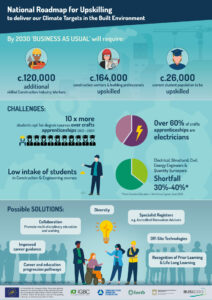We are compiling a ‘National Upskilling Roadmap’ for the Built Environment to 2030+. The initiative is called BUSI2030’ (Build Up Skills Ireland) – co-funded by the EU Life programme. Similar national roadmaps are being completed in parallel across Europe regarding Construction and Professional skills.
Our built environment accounts for 37% of Ireland’s national emissions. Halving these emissions by 2030 is extremely challenging and will require significant investments in skills. The construction industry is facing labour and skills shortages, that need to be overcome to successfully decarbonise our built environment.
The Irish Green Building Council (IGBC), the Construction Industry Federation (CIF), Laois-Offaly Education and Training Board (LOETB) and the Technological University of the Shannon (TUS) are now working together to make sure we have the right skills to reach Ireland’s climate goals.
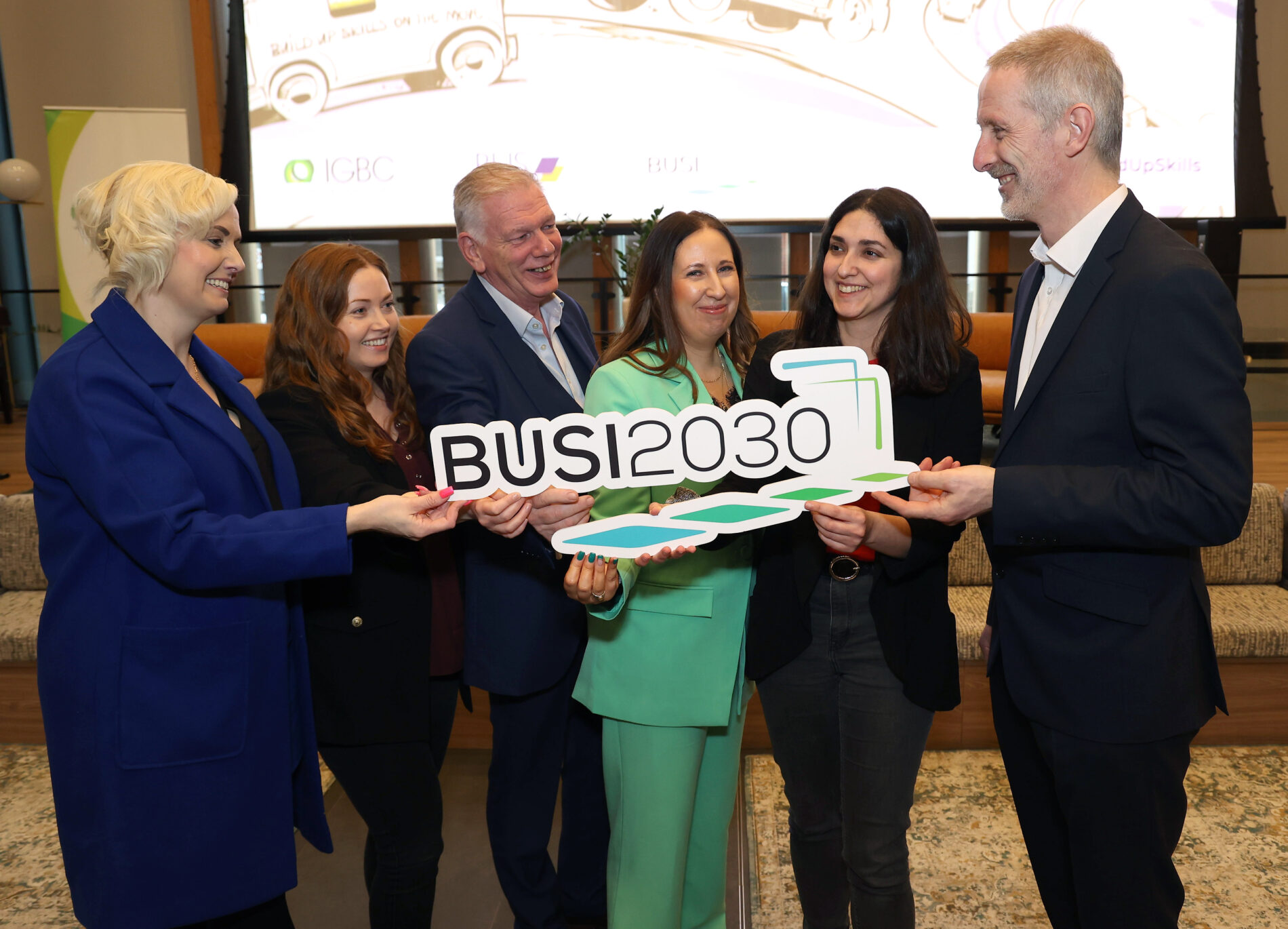
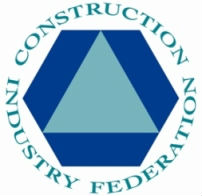 |
 |
 |
Roadmap
The roadmap, which will be developed through extensive stakeholder engagement, will refine and refresh the “BUILD UP Skills – Ireland National Roadmap for Energy Training in Construction” published in 2014.
Considering emerging trends and new policy development, the new version of the roadmap will cover not only energy efficiency but also decarbonisation of heating and cooling, digitisation, the circular economy and embodied carbon emissions.
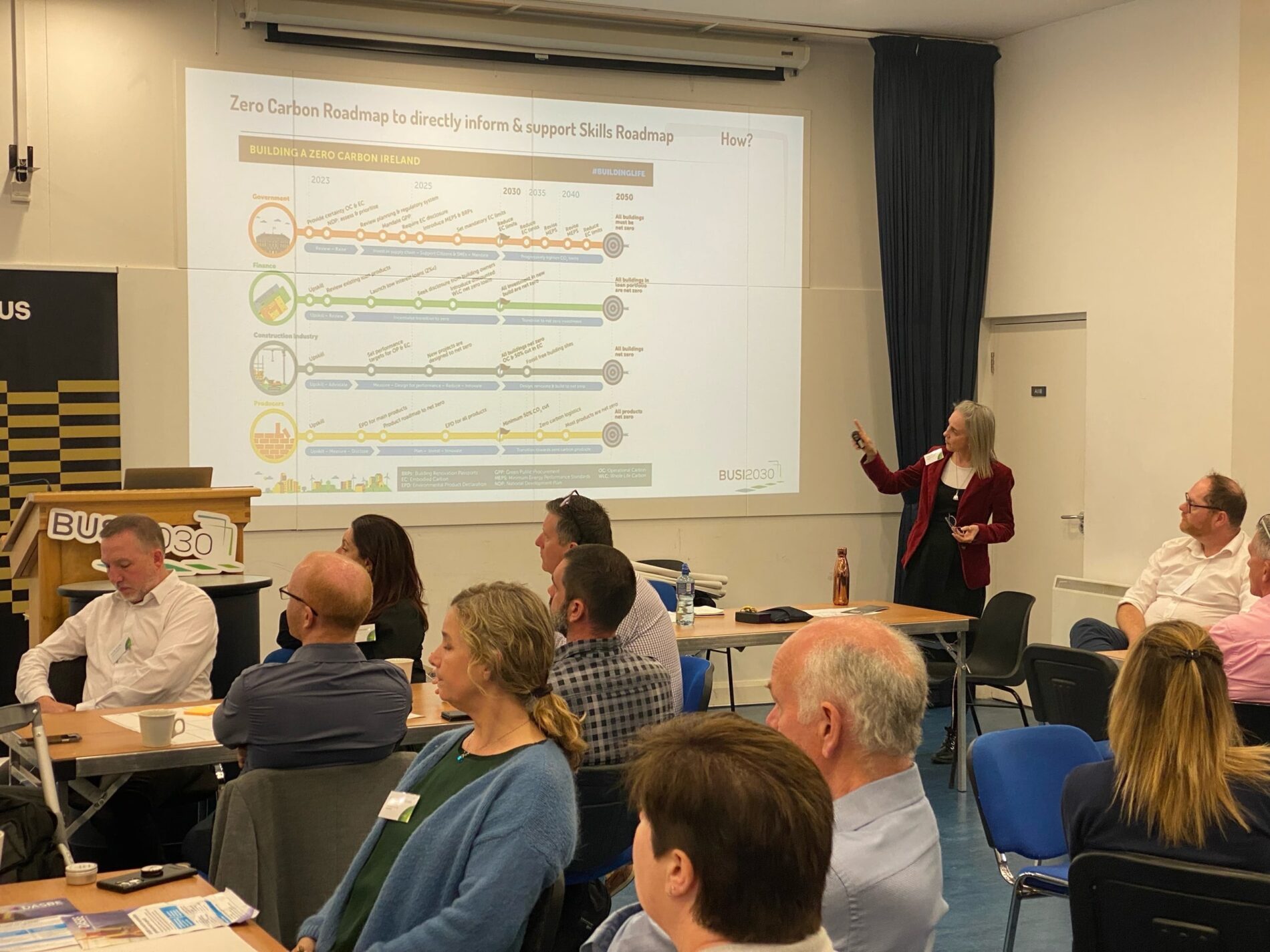
Workshops
The aim of the workshops was to gather feedback on what skills we need to make the construction sector greener while achieving our housing, commercial and retrofit targets and how to get there.
Previous Workshops included:
- 26th April 2023: SKILLS GAPS: De-Carbonisation, Energy Efficiency, Digitalisation, Circular Economy
- 24th May 2023: Energy Efficiency & Renewable Energy -TUS Campus, Thurles
- 13th June 2023: Green Skills in Action – Mount Lucas National Training Centre, Co Offaly
- 21st June 2023: Carbon – Online
- 6th September 2023 Galway: Skills Gaps: DIGITALISATION – The University of Galway – 11.00 am – 1.00pm
- 22nd September 2023 Cork: Skills Gaps: EMERGING TRENDS – Tyndall National Institute- 11.00 am – 1.00 pm
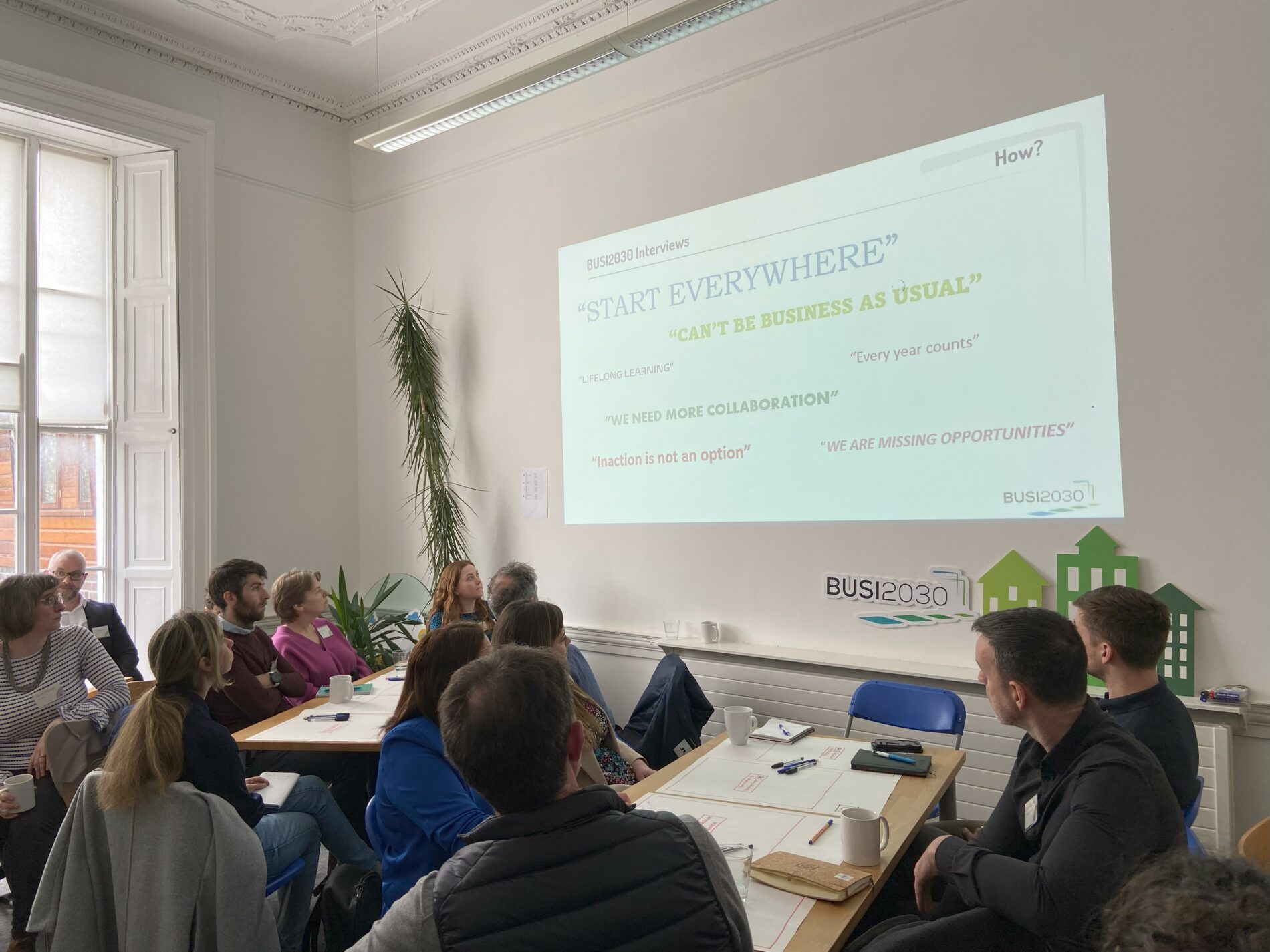    |
 |
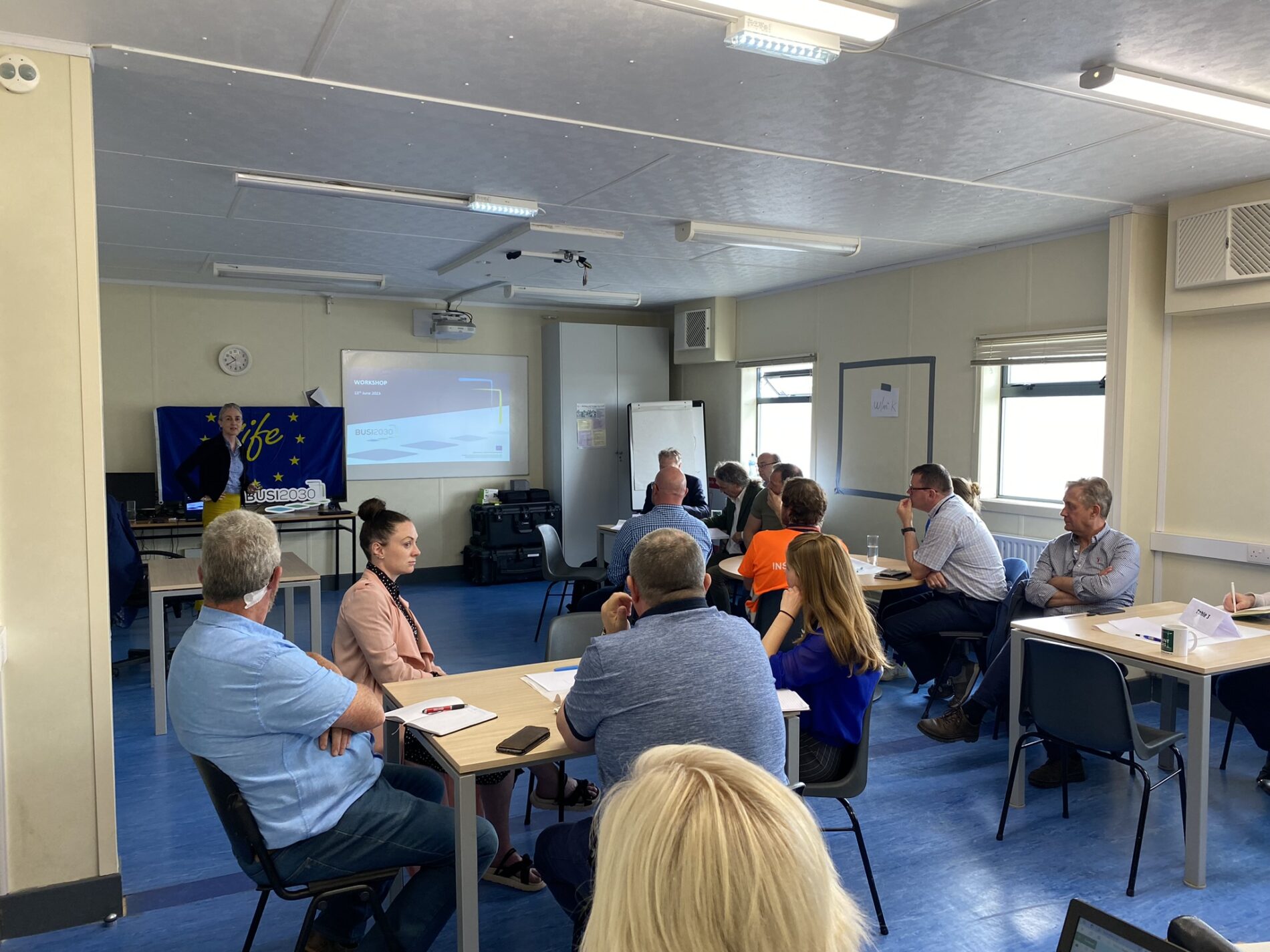 |
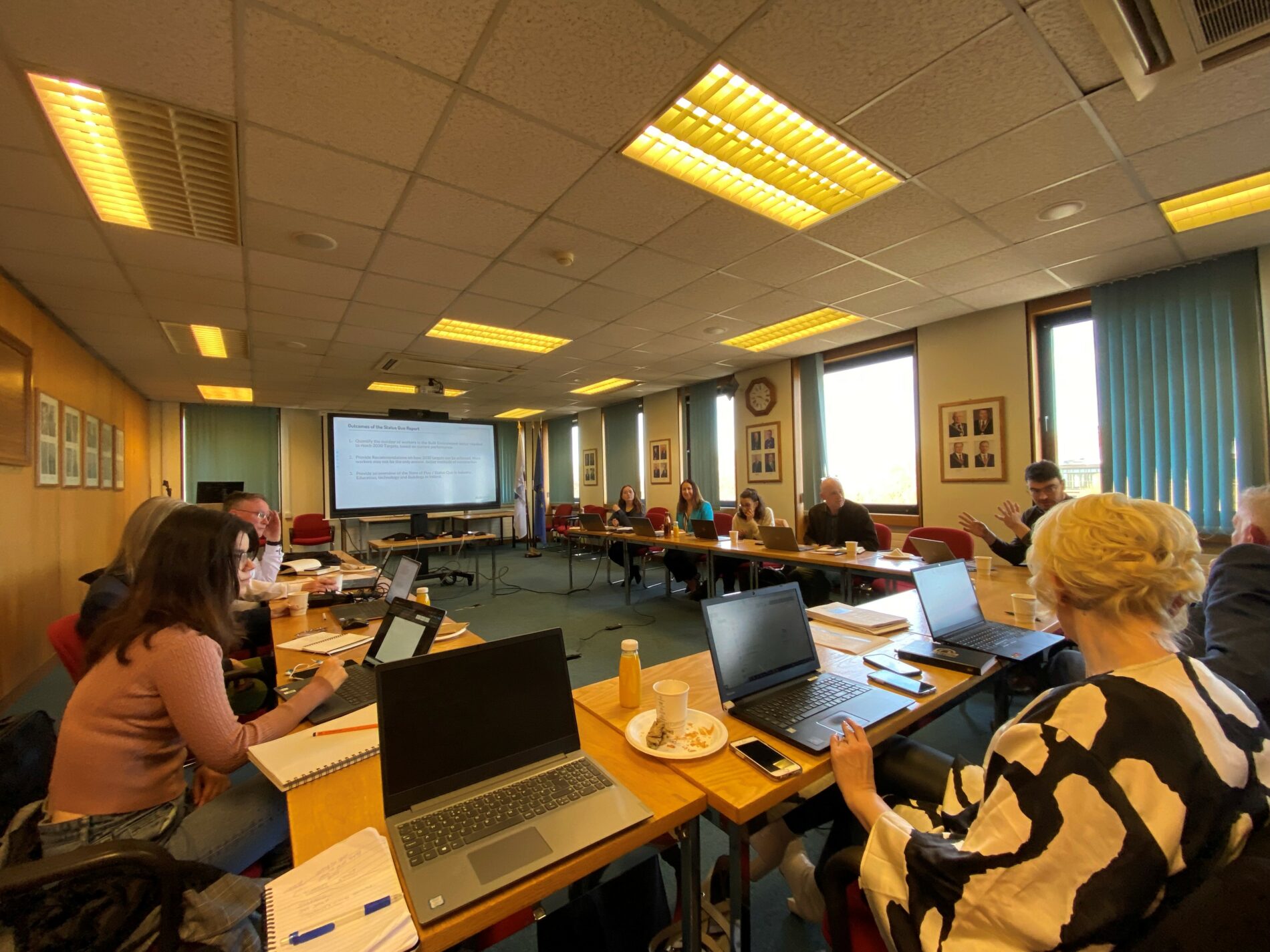 |
Stakeholder Map
The BUSI2030 stakeholder system map contains all the diverse organisations that make up the construction industry as well as those who are responsible for education, training and production of skilled construction workforce in Ireland. By bringing these organisations together, BUSI2030 will ensure that they are aligned towards achieving the same goal of predicting future skill requirements and ensuring that they are met in the coming years.
Open the map here.
Status Quo Report
A National Status Quo Report was launched on the 24th of October. You can read more about it in the Press Release.
Download the analysis of the National Status Quo here.
Infographic
Click on the picture to download the infographic.
Draft National Upskilling Roadmap
A draft version of the roadmap has been launched on the 22nd of January for Public Consultation. We invite you all to give us your feedback by the 9th of February.
Launch of the National Upskilling Roadmap 2030
On the 27th of March 2024, we finally launched our National Upskilling Roadmap 2030 for Sustainability in the Built Environment. You can read more about it in the press release here.
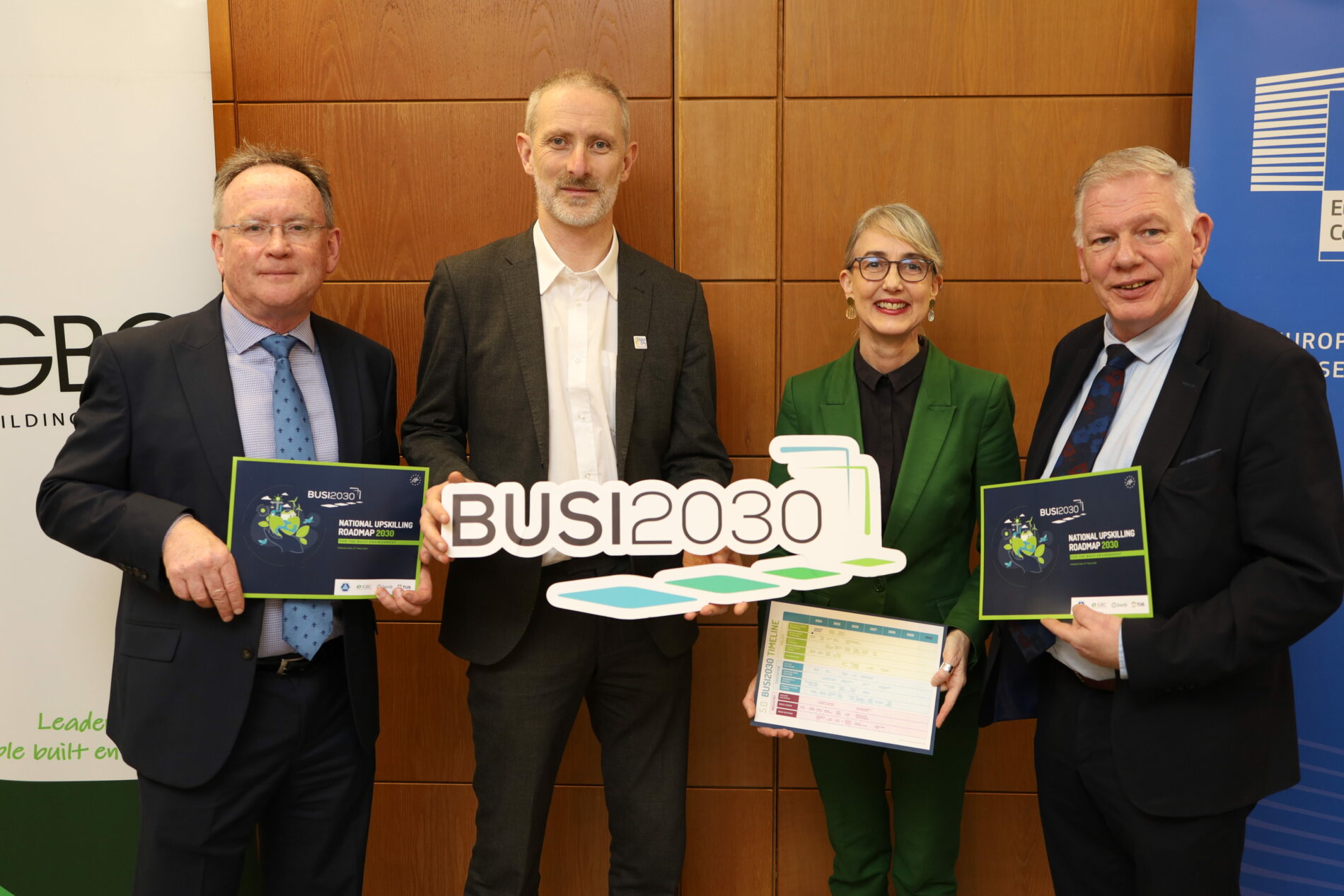
BUSI2030 in the press
- Irish Examiner – “Ireland needs 120,000 new construction workers to achieve climate and housing targets”
- Business Plus – “Construction Skills Shortage Threatens Ireland’s Climate And Housing Targets”
- Engineers Ireland Magazine – “Research reveals key skills shortages pose threat to Ireland’s climate targets”
- Passive House + – Ireland’s climate targets threatened by critical skills shortage in sector
- Irish Construction News October November 2023 – Delivering Net Zero Carbon Buildings
Want to get involved in this initiative?
Or contact Sinéad (IGBC) at [email protected] or Gloria (TUS) at gloria.callinan@tus.ie.
 |
This initiative is called Build Up Skills Ireland 2030 (BUSI2030) and is co-funded by the European Union (Project 101075961 — LIFE21-CET-BUILDSKILLS-BUSI2030). Views and opinions expressed are however those of the author(s) only and do not necessarily reflect those of the European Union or CINEA. Neither the European Union nor the granting authority can be held responsible for them. | 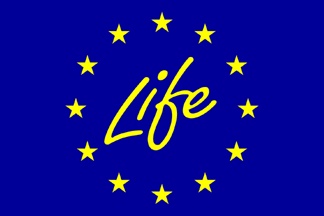 |
